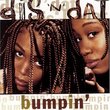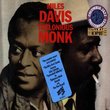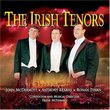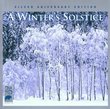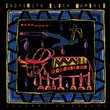| All Artists: Franz [Vienna] Schubert, Franz Liszt, Claude Debussy, Felix [1] Mendelssohn, Vladimir Horowitz Title: The Romantic & Impressionist Era Members Wishing: 0 Total Copies: 0 Label: Sony Original Release Date: 1/1/1994 Re-Release Date: 7/19/1994 Genres: Special Interest, Classical Styles: Marches, Forms & Genres, Short Forms, Historical Periods, Modern, 20th, & 21st Century, Instruments, Keyboard Number of Discs: 1 SwapaCD Credits: 1 UPCs: 074645347127, 5099705347126 |
Search - Franz [Vienna] Schubert, Franz Liszt, Claude Debussy :: The Romantic & Impressionist Era
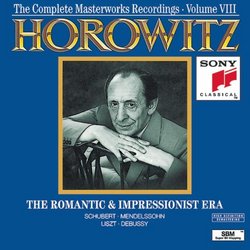 | Franz [Vienna] Schubert, Franz Liszt, Claude Debussy The Romantic & Impressionist Era Genres: Special Interest, Classical
Vladimir Horowitz's tightly sculpted Schubert Impromptus (a pair each from both sets) don't sing as they should. The second Liszt Consolation, though, finds the great pianist in his lyrical element, and so does a more ex... more » |
Larger Image |
CD DetailsSynopsis
Amazon.com Vladimir Horowitz's tightly sculpted Schubert Impromptus (a pair each from both sets) don't sing as they should. The second Liszt Consolation, though, finds the great pianist in his lyrical element, and so does a more expansive, sexier Debussy Etude #11 than the one he recorded on 78s. Also new to Horowitz's Debussy discography is a ravishing "La terrasse des audiences du clair de lune" from Carnegie Hall. He gussies up the ending of Mendelssohn's A minor etude, and performs similar operations on Liszt's shallow but coruscating Scherzo & Marsch. Horowitz's only performance of the latter contains some of the most demonic piano playing ever captured by a recording device. Thank God CBS was on hand to tape it. --Jed Distler Similar CDs
Similarly Requested CDs |
CD Reviews...A Mixed Bag in this Horowitz Recital Hank Drake | Cleveland, OH United States | 05/08/2003 (4 out of 5 stars) "Volume Eight of Sony's Horowitz reissue contained a selection of live and studio recordings of Horowitz in music of the Romantic and Impressionist era.Horowitz recorded relatively little Schubert until his last years, and listening to these Impromptus, it's easy to understand why. Although impeccable technically, with admirable voicing in the F Minor Impromptu and dazzling repeated notes in the A-flat Impromptu, the performances have an underlying discomfort and exude a hypertension which is poles apart from the relaxation of Horowitz's later Schubert performances. Matters are not helped by the spiky, shallow tone of Horowitz's personal Steinway (CD 186, which was Horowitz's usual piano from 1965 until its premature death in 1972, was replaced with CD 223, trucked in from Horowitz's Connecticut farm house for the Schubert works).Horowitz dipped his toes into the music of the Impressionists, recording no Ravel and only a smattering of Debussy and Poulenc. The two Debussy works on this CD have never been released before. The Etude for Composed Arpeggios was recorded at a rehearsal for Horowitz's 1965 comeback concert, and is a much more personal and effective rendition than his 1934 version. The Prelude was recorded live during what must have been New York's flu season--I have never heard so much coughing during a live concert--although the effect is probably exaggerated by Horowitz's quiet playing. For all the "thunder and lightning" awe that accompanied Horowitz's concerts, another of his impressive technical feats was his ability to play soft-softer-softest and maintain complete control. Horowitz's power is so spellbinding here that one can ignore the audience's bronchial afflictions and be mesmerized by the performance.The Mendelssohn Etude is a remarkable display of Horowitz's rapid and even fingerwork, with a coda by the pianist which makes a much more effective ending than Mendelssohn's original. What a pity he never recorded the same composer's Spinning Song.Liszt's Second Consolation is not often played, and is an effective demonstration of Horowitz's identification with Liszt's more reflective side. There is some remarkable voice leading here, and wonderful balancing of elements.Apparently, Horowitz only played Liszt's Scherzo and March once, at the concert recorded here. As was customary with some of Liszt's less serious efforts, the pianist made a few alterations to the score, reducing redundant passages, expanding others, and composing a more effective ending--all of which unquestionably improve the piece. Horowitz commits the crime of making this bombastic, vulgar piece sound better than it is, and his brilliant, demonic performance proves the oft told remark that "The worse the piece, the better Horowitz plays it."The sound is acceptable in both the live and studio selections, although a bit spiky in the Schubert works." More Hot Horowitz Michael B. Richman | Portland, Maine USA | 11/23/2000 (4 out of 5 stars) "Volume Eight of Vladimir Horowitz's "Complete Masterworks Recordings" ("The Romantic & Impressionist Era") collects compositions by Schubert, Liszt, Debussy and Mendelssohn. Four Schubert "Impromptus" are first, and while they may not receive the praise given to performances by Perahia or Uchida, they are quite enjoyable. The Liszt "Consolation," which was recorded during the same session that yielded the music on Volume One, is a subtle, delicate gem and one of my favorite of the composer's works. This CD marks the first time that these two Debussy performances by Horowitz have been released, and you can see why -- someone can't seem to stop coughing during Prelude No. 7! Nonetheless, Horowitz's remarkable playing saves the day, and makes the performance worthwhile. Next comes the Mendelssohn Etude taken at a blistering pace for all of its ninety seconds. This volume concludes with Liszt's Scherzo & Marsch, a piece that is rarely performed because of its difficulty level, but you wouldn't know that from the ease in which Horowitz plays it. In all, Volume Eight is not as essential as some of the other volumes in the "Complete Masterworks Recordings" series, but it is an excellent set all the same."
|

 Track Listings (9) - Disc #1
Track Listings (9) - Disc #1